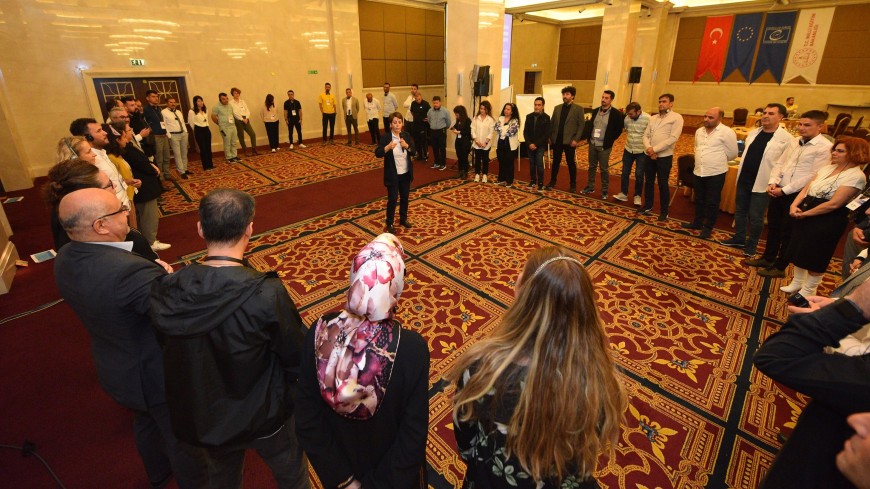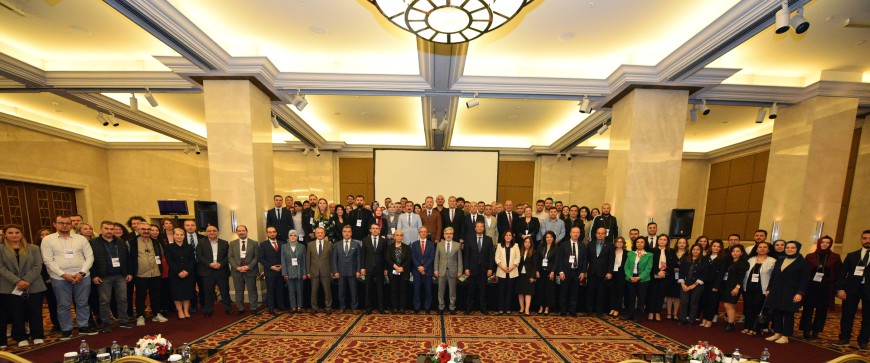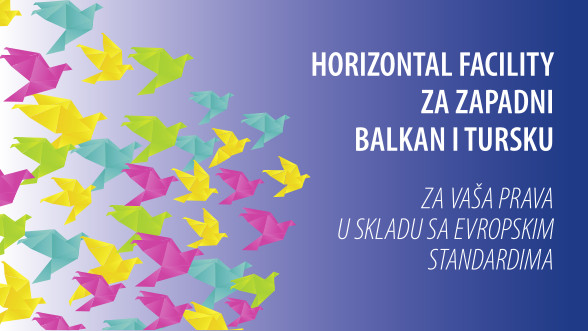A launching event of the joint European Union/Council of Europe “Project on digital citizenship education in Türkiye”, implemented with the Ministry of National Education, was organised on 17 October in Ankara.
The event gathered around 120 participants from Türkiye and abroad, including teachers and administrators from 14 lower-secondary schools from 7 provinces of Türkiye, as well as representatives of public authorities, civil society and diplomatic community.
The aim of the launching event was to inform the members of the school communities and stakeholders working in the fields of digitalisation and education about the implementation of digital citizenship education (DCE) in Türkiye. In today's world, children and adolescents are highly engaged with digital technology both for leisure and for educational purposes. In order to use it responsibly for communication, learning and entertainment, they must acquire a diverse set of skills combined with values, attitudes and critical knowledge. These competences will empower them to make the most of the advantages and navigate the challenges they may encounter.
As these were among the main messages of the launching event of the Project, the European Union and the Council of Europe reaffirmed their commitments to support the authorities in strengthening digital citizenship education in Türkiye.
The following keynote speakers have shared important messages, putting emphasis on the principles and standards to be observed during the implementation of the Project.
Odoardo COMO, Head of Co-operation of the Delegation of the European Union to Türkiye, referred to the contribution of the EU in the education sector and noted that “Digital Education has the potential to efficiently support the EU and Türkiye agenda of high quality and inclusive education. In Türkiye, the EU has invested more than 1 billion Euro into the education sector over the last 15 years. EU support focused on increasing the quality of pre-primary as well as vocational education. Vulnerable children such as refugees, Roma and girls in certain regions also benefitted from our actions. This project will contribute to the longstanding promotion by the EU and the Council of Europe of fundamental rights, democratic values and citizens’ engagement in public debates and decision-making.”
Starting his opening speech by underlining the co-operation between the Council of Europe and the Ministry of National Education of Türkiye in the field of education for democratic citizenship extending over a decade, Claus Neukirch, Director of Programme Co-ordination of the Council of Europe emphasised the importance of digital citizenship education: “To unlock the full potential of individuals and promote a democratic culture, it is imperative that everyone has a solid understanding of digital technologies and their impact on daily life. Digital citizenship education provides a holistic framework that can be integrated across the curriculum, covering competencies related to being online, well-being online, and rights online.”
In his opening remarks Deputy Minister of the Ministry of National Education of Türkiye, Ömer Faruk Yelkenci emphasised the importance of children receiving a good and quality education to be useful to themselves, their families, their country, and all humanity, and stated that “As the Ministry of National Education, we consider it essential to support children in the digital world and ensure that they grow up as responsible and moral digital citizens. This project, which we initiated in co-operation with the Council of Europe, will set an example for our education stakeholders in Europe. What I want from my colleagues who will take part in the project is to evaluate not only the application but also the approach to the issue from a critical perspective and put forward their suggestions and thoughts."
The Council of Europe introduced the concept of Digital Citizenship Education in 2017 to support education professionals and parents in guiding learners and offering them creative opportunities to cultivate the values, attitudes, abilities, and knowledge required for active participation and responsible citizenship in society. In this respect, the Project will pilot the resources and instruments available in 14 schools in close co-operation with the Directorate General of Basic Education and Directorate General of Innovation and Education Technologies of the Ministry of National Education in Türkiye.
The launching event is followed by a two-and-a-half-day capacity building activity for DCE Co-ordinators (teachers and administrators from pilot schools) to introduce them with the Project and DCE including their practical aspects, and to benefit from the participants’ feedback for the future roadmap.
The “Project on digital citizenship education in Türkiye” is part of the joint European Union and Council of Europe programme “Horizontal Facility for the Western Balkans and Türkiye“.




